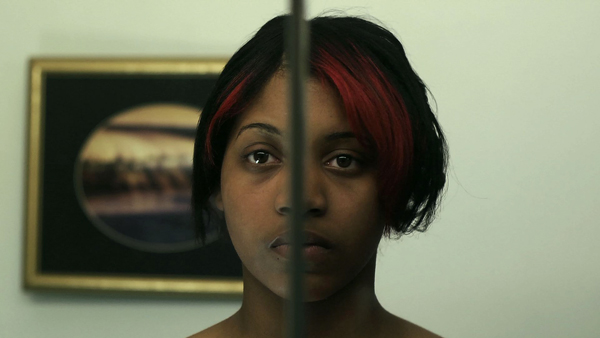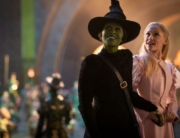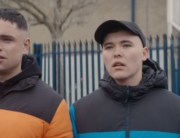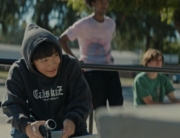The Possibility Project, a New York nonprofit, brings teens together to write and perform an original musical based on their life experiences. Its purpose is to provide a positive outlet for moving past the negativity in their lives in order to change for the better. All of the young adults have been involved in the foster care system. Their musical has been turned into a movie to shed light on what is wrong with the system as it is currently being run.
Among the five story lines, Megan (Claribelle Pagan) is taken in by the Administration for Children’s Services (ACS) after confessing to a teacher about the physical and sexual abuse she suffers at home. She is joined by her sister at a temporary group home. At court, their lawyer requests that the two remain together, but Megan is considered to be in need of mental health evaluation and counseling, so she is sent to a residential treatment center (RTC). Both the group home and the RTC are depicted as resembling a women’s correctional facility minus the guards. Megan survives by keeping her mouth shut and being submissive, but she quickly becomes the victim of mental and physical cruelty at the hands of the other girls in the facility.
Austin (Gilbert Howard) and his brother are homeless. They take to stealing women’s purses for money to eat, but when Austin gets hurt during a robbery, he refuses to do it anymore. Instead, they start working for a drug dealer and become embroiled in a turf war with rival dealers. Marie (Ebonee Simpson) has been placed temporarily in a group home while her custodial grandmother is in the hospital. When the grandmother dies, she walks out of the home in search of friends to take her in.
A few original rap songs from the musical are included. Most are superfluous to the plot, but one that accompanies Austin’s story lends a strong sense of camaraderie and excitement to plans for bringing the turf war to an end.
All of the teens reach a crisis point where they are forced to take stock of their situation and do what is needed to turn their lives around. The stories are familiar and believable, and indicative of a system that is good at pulling young people out of dysfunctional homes, but woefully inadequate at providing them with a supportive alternative. The film is meant to serve the two-fold purpose of giving hope to teens within the system and a reality check to those responsible for its administration.
Unfortunately, it is possible that the truth behind the stories will get lost, diluting its purpose. Perhaps to accommodate the musical component, director Juan Carlos Pineiro Escoriaza has created a slick, well-acted presentation that comes across much like a made-for-TV drama. Had he approached it more like a documentary, it might have strengthened its impact.







Leave A Comment